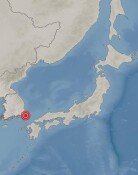Xis diplomacy showcased at APEC summit
Xis diplomacy showcased at APEC summit
Posted October. 16, 2013 07:49,
Chinese President Xi Jinping attended the Asia-Pacific Economic Council (APEC) summit held in Bali, Indonesia for three days from October 6 for the first time since his inauguration.
Analysts say that Xi showed a stance that was not too hot or not too cold at the summit. If closely examined, the Chinese head of state displayed his personal propensity and characteristics.
Chinese leaders are selected without undergoing the fierce competition of elections. Hence, they are not accustomed to being in media spotlights and drawing attention from the mass of people. Moreover, since the death of former President Deng Xiaoping, Chinese leaders have been reluctant to display their personal feelings and thoughts on diplomatic stage. At this year`s APEC summit, however, Xi was different from others. He was not only highly accustomed to natural manners, but was quite skillful in conveying Chinas voice to the world.
In Bali, he presented three non-changes in the Asia Pacific region. The first is common desire to achieve peace, stability and development of the region; the second is the historical trend of rising stature and roles in the global political and economic landscape; and third is the driving force and potential to spearhead constant economic growth. These constitute demonstration of Chinas broadmindedness to embrace other countries and relaxed position, when compared with the accusation of Chinas threat, which Japanese Prime Minister Shinzo Abe circulated at various corners of the region.
The "Asia Pacific Rebalancing strategy (return to Asia)" adopted by the U.S. wields strategic pressure on China. The U.S. accorded Japan the right of collective self-defense, and joined Japan and Australia to issue statement on East China Sea, while U.S. Defense Secretary Chuck Hagel demanded Korea to join the U.S. missile defense system when he visited Korea in late September. However, Xi did not even mention rebalancing strategy at the APEC summit at all. This indicates that President Xi is handling Chinas national security issue through a practical approach while keeping low profile. Regardless of whether U.S.-led alliances provoke conflicts with China or not, China is thus set to focus on managing the Chinese economy in a stable fashion.
In fact, in the face of the U.S. that adopted security as key agenda before and during the APEC summit, China countered it with economy. For starters, Xi stressed optimism about the Chinese economy. Through growth rate slowed, the quality of the countrys growth has improved, and internal growth momentum is mounting, he noted. He also conveyed Chinas determination to economic reform. He stressed, Reform should be implemented to the complete end without fail. If a country gets reluctant and fails to move forward, efforts that have been made previously will all go up in smoke as well.
As for political reform, Xi said however Since China is a large country, it should never make a mistake that could topple (the state) when it comes to fundamental issues. There are two implications here: First, China will continue reform, but the procedure and goals is Chinification, not Westernization; and secondly, Chinas reform should not be conducted at the expense of its political and social stability within China and current political order. President Xi also criticized protectionist trade policy and the U.S.-led Trans Pacific Partnership (TPP). He noted because individual economic units share fate with others, they should cooperate in macroeconomic policy, and should not blast and take hostile stances against each other.
President Xi has been sending a consistent message to the international community this year: China wishes to achieve balanced development of countries and regions, and the global economy through opening, engagement and cooperation. Currently, countries in East Asia are wary of whether strategic competition between China and the U.S. will further intensify. However, Chinese leaders are only focusing on economic reform, while keeping an indifferent eye on the U.S. offensives of rebalancing in the Asia-Pacific region. In order to achieve its rise, the worlds most populous country is taking a strategic tactic to only focus on its own agenda.







